Veljko Bulajić
출생 : 1928-03-22, Vilusi, Nikšić, Montenegro

Writer
A German soldier, after avoiding death in a Partisan raid, wanders through the unforgiving mountainous terrain of an unfamiliar country, helplessly seeking salvation.

Director
A German soldier, after avoiding death in a Partisan raid, wanders through the unforgiving mountainous terrain of an unfamiliar country, helplessly seeking salvation.

Self
Oleg Vidov — one of the Soviet Union's most beloved actors — was persecuted, blacklisted and pushed to the breaking point before escaping to the West and achieving the American dream.
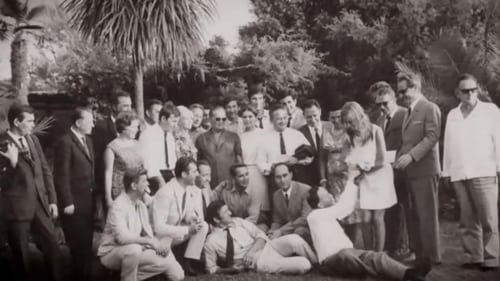
Himself
This eye-opening and bittersweet chronicle of the Yugoslavian film industry recounts how the cinema was used—often with direct intervention from President Josip Broz Tito—to create and recreate the young nation’s history, replete with heroes and myths that didn’t always hew closely to reality.

Writer
The film is set in mid-16th century, at a time when the entire eastern Mediterranean is dominated by two great empires, the Ottoman Empire and the Republic of Venice, with the small but wealthy maritime republic of Ragusa (modern-day Dubrovnik) managing to maintain its independence through diplomatic agreements.

Director
The film is set in mid-16th century, at a time when the entire eastern Mediterranean is dominated by two great empires, the Ottoman Empire and the Republic of Venice, with the small but wealthy maritime republic of Ragusa (modern-day Dubrovnik) managing to maintain its independence through diplomatic agreements.

Self
Film The Other Side of Welles portrays the life, work and intellectual heritage of Orson Welles in Yugoslavian federal unit "Socialist Republic of Croatia". Through the period of 25 years, he appeared as actor in several co productions made in Croatia (David and Goliath, Tartars, Austerlitz) - acted in few Yugoslavian film (Battle of Neretva, The Secret of Nicola Tesla) and directed two of his own film: The Trial and The Deep. As a Hollywood maverick, in Croatia he often found his shelter. Through the never before seen archive materials and the interviews with the people who worked with him, directors of this film, in the 90th anniversary of his birth and 20th of his passing, reveal the other side of Orson Welles

Himself
A documentary about the history of Yugoslavian Film Festival in Pula and ex-Yu cinema in general. Many legends of ex-Yu cinema were interviewed here.

Co-Writer
A war drama about a German officer's search for a priceless art collection.

Director
A war drama about a German officer's search for a priceless art collection.

Writer
Settlers from infertile parts of Yugoslavia, arrive to rich Slavonia and Baranja. There they are faced with the decree of the Communist government by which they will be left without the land that they received in the process of collectivization just a year ago. The peasants fiercely resist the government's decision. Milisa Matic is a peasant who fights against the establishment of peasant cooperatives because in that case many peasants would lose their newly acquired land. The Communist government has decreed the founding of cooperatives and Markan Radisic is in charge of their establishment. When Markan's son proposes to Milisa's daughter, the two men confront each other. In self-defense Markan kills Milisa, however the national court fails to find mitigating circumstances. On the way to prison he listens to the news on radio about the abolition of agricultural cooperatives.

Director
Settlers from infertile parts of Yugoslavia, arrive to rich Slavonia and Baranja. There they are faced with the decree of the Communist government by which they will be left without the land that they received in the process of collectivization just a year ago. The peasants fiercely resist the government's decision. Milisa Matic is a peasant who fights against the establishment of peasant cooperatives because in that case many peasants would lose their newly acquired land. The Communist government has decreed the founding of cooperatives and Markan Radisic is in charge of their establishment. When Markan's son proposes to Milisa's daughter, the two men confront each other. In self-defense Markan kills Milisa, however the national court fails to find mitigating circumstances. On the way to prison he listens to the news on radio about the abolition of agricultural cooperatives.
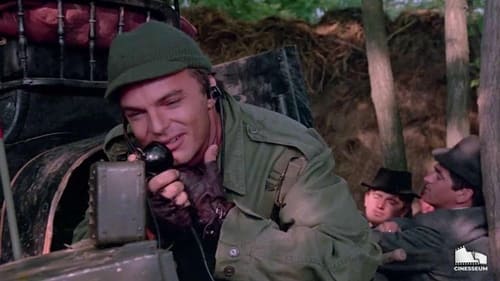
Writer
This WW2 epic was one of the last movies of that kind made in former Yugoslavia. It tells the true story of great transport of Partizans from Vojvodina to Bosnia in 1943.

Director
This WW2 epic was one of the last movies of that kind made in former Yugoslavia. It tells the true story of great transport of Partizans from Vojvodina to Bosnia in 1943.

Writer
After WW II many young people arrive to Zagreb, among them a young worker Sonja Kacar. She is supposed to participate in the construction of the first generator in the Rade Koncar factory. Because there aren't enough experts and materials in Yugoslavia, the factory counts on help from fellow communist countries, Czechoslovakia and Soviet Union. However, after the Inform Bureau's resolution this help is no longer available. Sonja experiences a great intimate disappointment because Stjepan, who she is in love with, supports Stalin.

Director
After WW II many young people arrive to Zagreb, among them a young worker Sonja Kacar. She is supposed to participate in the construction of the first generator in the Rade Koncar factory. Because there aren't enough experts and materials in Yugoslavia, the factory counts on help from fellow communist countries, Czechoslovakia and Soviet Union. However, after the Inform Bureau's resolution this help is no longer available. Sonja experiences a great intimate disappointment because Stjepan, who she is in love with, supports Stalin.

Writer
The recollections of Yugoslavian president-for-life, Josip Broz 'Tito'.

Director
The recollections of Yugoslavian president-for-life, Josip Broz 'Tito'.

Writer
After the murder of the Russian Emperor Peter III, who was succeeded by Empress Catherine, Satan decides that the balance between good and evil on Earth has been destabilized. In order to set things right, he sends his representative to Earth - the teacher Farfa, who bears an unusual resemblance to Peter III. His mission is to seize power from the old Duke of Montenegro, and then to take back the Russian throne as Peter III. The people of Montenegro accept Farfa as their new leader, and he proclaims himself the new Emperor, Scepan Mali, successfully resisting an invasion by the Turks. Farfa is touched by the Montenegrins' kindness and courage, falls in love with the beautiful Elfa, and fails to follow Satan's plan. Not one to be crossed, Satan sets out to kill him.

Director
After the murder of the Russian Emperor Peter III, who was succeeded by Empress Catherine, Satan decides that the balance between good and evil on Earth has been destabilized. In order to set things right, he sends his representative to Earth - the teacher Farfa, who bears an unusual resemblance to Peter III. His mission is to seize power from the old Duke of Montenegro, and then to take back the Russian throne as Peter III. The people of Montenegro accept Farfa as their new leader, and he proclaims himself the new Emperor, Scepan Mali, successfully resisting an invasion by the Turks. Farfa is touched by the Montenegrins' kindness and courage, falls in love with the beautiful Elfa, and fails to follow Satan's plan. Not one to be crossed, Satan sets out to kill him.
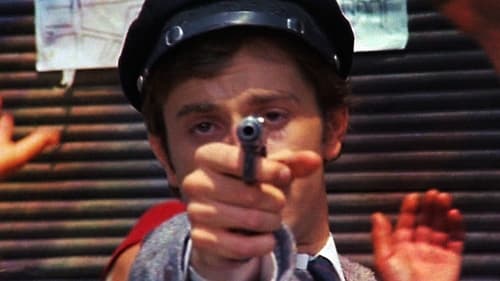
Director
Historical depiction of the events preceding the political murder of Archduke Franz Ferdinand, would-be emperor of the Austro-Hungarian throne, in Sarajevo, June 28, 1914. A World War would start there, that some claim has not yet ended - merely changed fighting grounds once in a while
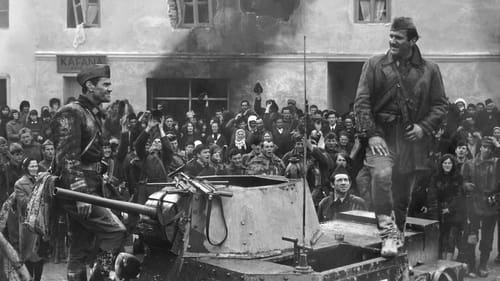
Writer
In January 1943 the German army, afraid of an Allied invasion of the Balkans, launched a great offensive against Yugoslav Partisans in Western Bosnia. The only way out for Partisan forces and thousands of refugees was the bridge on the river Neretva.

Director
In January 1943 the German army, afraid of an Allied invasion of the Balkans, launched a great offensive against Yugoslav Partisans in Western Bosnia. The only way out for Partisan forces and thousands of refugees was the bridge on the river Neretva.

Writer
Four partisans in the mountains and suffering from typhus are slowly destroyed.

Director
Four partisans in the mountains and suffering from typhus are slowly destroyed.

Editor
"Skoplje '63" is a 1964 Yugoslavian documentary film directed by Veljko Bulajić about the 1963 Skopje earthquake (Skoplje, per film title, is the Serbo-Croatian spelling of Skopje). The filming started three days after the earthquake and lasted for four months. After that, Bulajić spent 12 months editing the footage at Jadran Film studios.

Writer
"Skoplje '63" is a 1964 Yugoslavian documentary film directed by Veljko Bulajić about the 1963 Skopje earthquake (Skoplje, per film title, is the Serbo-Croatian spelling of Skopje). The filming started three days after the earthquake and lasted for four months. After that, Bulajić spent 12 months editing the footage at Jadran Film studios.

Director
"Skoplje '63" is a 1964 Yugoslavian documentary film directed by Veljko Bulajić about the 1963 Skopje earthquake (Skoplje, per film title, is the Serbo-Croatian spelling of Skopje). The filming started three days after the earthquake and lasted for four months. After that, Bulajić spent 12 months editing the footage at Jadran Film studios.
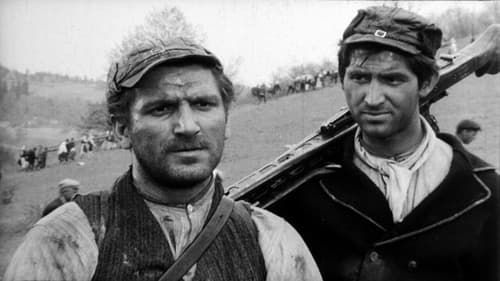
Scenario Writer
In June of 1942 Germans and their collaborators decide to get rid of partisans and their stronghold in the woods of Mount Kozara in Northern Bosnia. They encircle the mountain and begin the mop up operation. Out gunned and outnumbered the partisans must not only take care of themselves but try to protect thousands of refugees too.

Director
In June of 1942 Germans and their collaborators decide to get rid of partisans and their stronghold in the woods of Mount Kozara in Northern Bosnia. They encircle the mountain and begin the mop up operation. Out gunned and outnumbered the partisans must not only take care of themselves but try to protect thousands of refugees too.
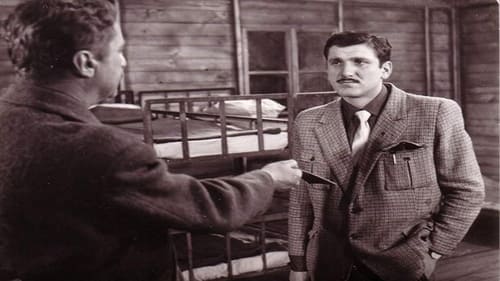
Writer
Farmers and their families, engineers, technicians, criminals and prostitutes were acquired on the construction of industrial facilities in Zenica. Siba tries to help them, working with dedication and love that goes beyond his duty. It is difficult to satisfy everyone and achieve more in this scorching city and Siba makes mistakes, carried by desire to achieve the impossible. With great effort, the builders manage to overcome the maelstrom after the dam burst, and while the first iron runs from the new furnace, Siba, dismissed because of errors committed, leaves a boom town of Zenica.

Director
Farmers and their families, engineers, technicians, criminals and prostitutes were acquired on the construction of industrial facilities in Zenica. Siba tries to help them, working with dedication and love that goes beyond his duty. It is difficult to satisfy everyone and achieve more in this scorching city and Siba makes mistakes, carried by desire to achieve the impossible. With great effort, the builders manage to overcome the maelstrom after the dam burst, and while the first iron runs from the new furnace, Siba, dismissed because of errors committed, leaves a boom town of Zenica.

Director
This conventional post-nuclear holocaust drama from Yugoslav director Veljko Bulajic seems to be at cross purposes. On the one hand, its anti-war sentiments are clear, as well as its realistic scenarios of destruction, and on the other hand, the director and scripter Cesar Zavatini have turned the story into a satire. At the center of focus is a young couple who were getting married when the atomic bombs changed the face of the planet, and through the couple's own dilemma the greater picture is glimpsed. Assisting Eva Krizevska, Anton Vrdoljak, Zlatko Madunic, and other actors is President Marshal Tito's army.
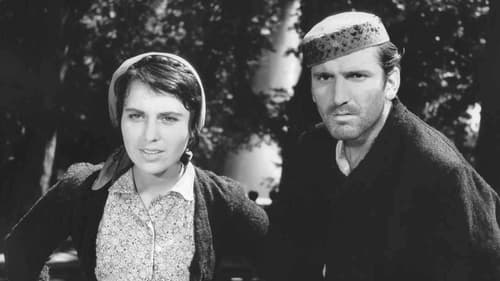
Writer
The story about colonization of poor Dalmatian peasants to the fertile Pannonian plain shortly after WWII.

Director
The story about colonization of poor Dalmatian peasants to the fertile Pannonian plain shortly after WWII.

Writer
Rose is a young woman who lost her husband in WW2, leaving her and their daughter behind. She gets close with his good-natured brother Drago. However, an unscrupulous smuggler Vincenzo is always around him, and things get tough for the couple.

Svećenik
Rose is a young woman who lost her husband in WW2, leaving her and their daughter behind. She gets close with his good-natured brother Drago. However, an unscrupulous smuggler Vincenzo is always around him, and things get tough for the couple.





























